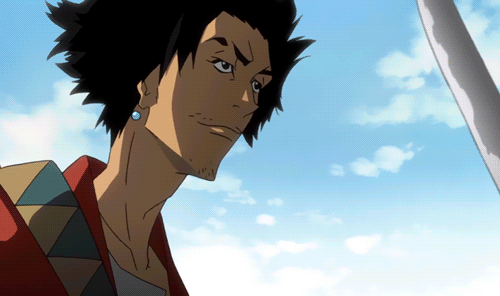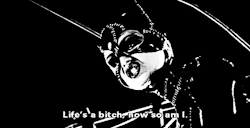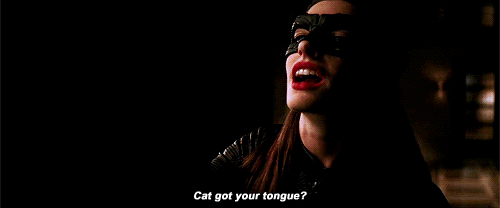This week, let’s look at what many might consider the
opposite of the moral center: the anti-hero. I’m a villain lover as many of you
know from all my fangirling during the villain series I did a little while
back. Which means I’m also a fan of a complex hero who walks the line between
the dark side and the light. Simply put, an anti-hero is a hero in a story that
lacks the typical heroic attributes. However, they are still considered a hero
and not a villain because of a few key redeeming features.
It follows then that the anti-hero’s main obstacle would be
the moral line between good and evil. This line can affect them on an external
or internal level. On an external level they might work outside of the normal
moral bounds of society. They could be a thief or a cold blooded assassin. Or
they could just be a general asshole. Mugen from Samurai Champloo is a good
example of this.

So is Cat Woman from the batman universe, who finds herself on
the hero side of things as much as the villain side.



But that moral line also is present on an internal level.
The hero might struggle with becoming a monster or, depending on what side of
the line they tend to, going soft. Hei, the hero of Darker than Black,
struggles with being a contractor, which are said to be monsters by nature. He
works for a shady organization dealing with difficult contractors, but he often
doesn’t follow orders directly, being softer than he lets on.


This moral line provides a lot of interesting conflicts,
both internally and externally, but a key part of the antihero’s journey is
that they ultimately do the heroic thing in the end. That’s what makes them an
anti-hero rather than a tragic villain. Its this ultimate move toward the
lighter side of thing that gives them their arc.
Even if they’re still kind
of an asshole, it’s the results of their actions that ultimately make a
difference.